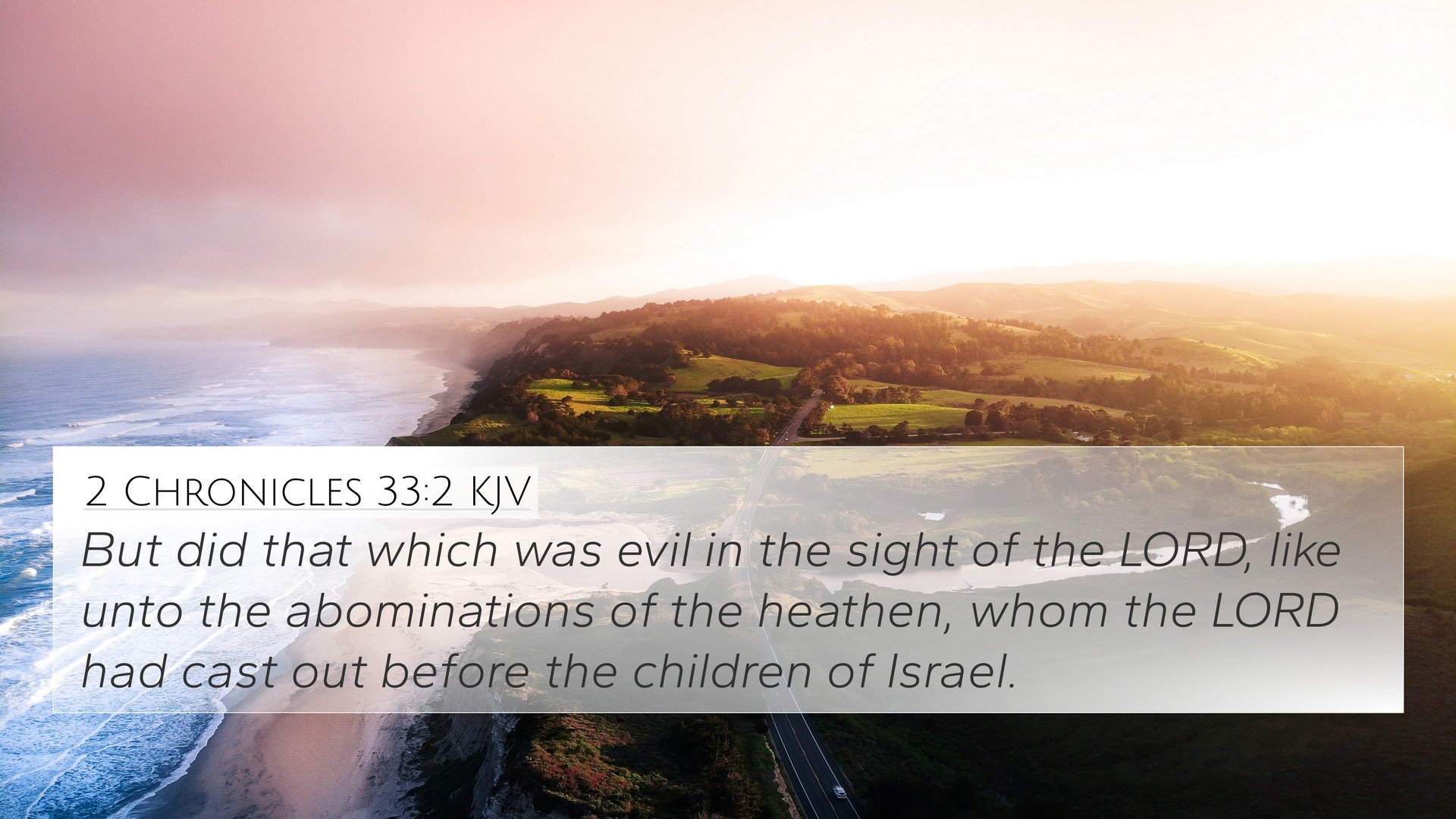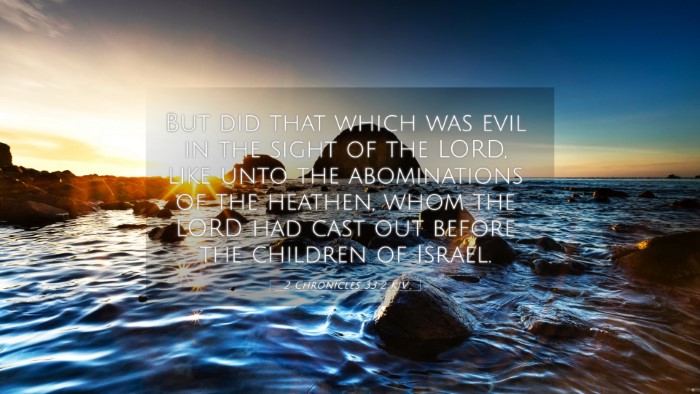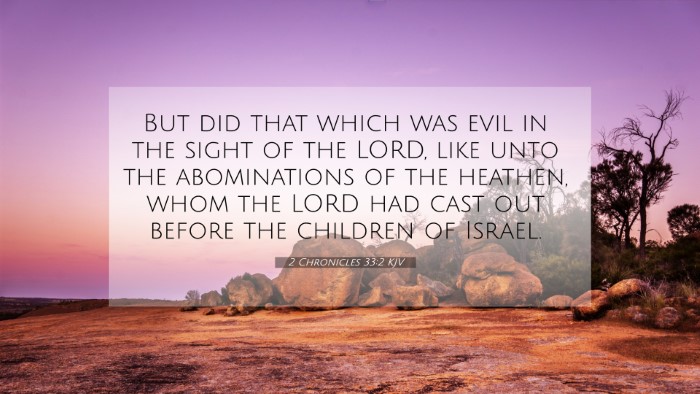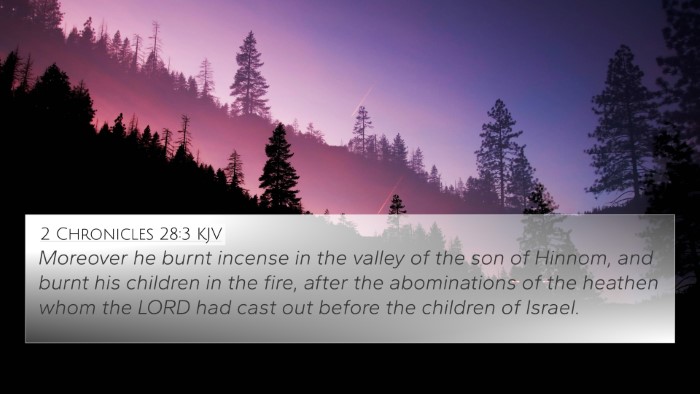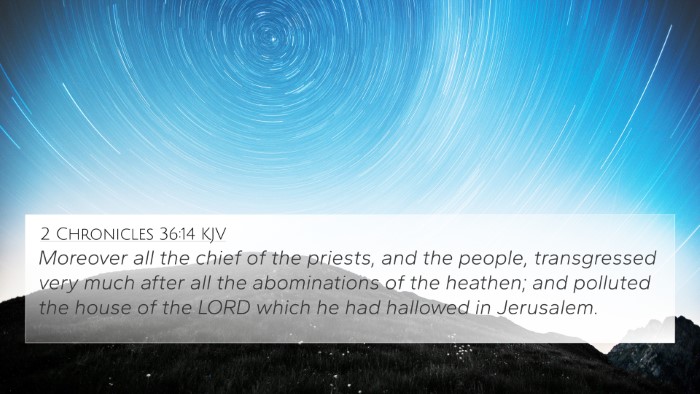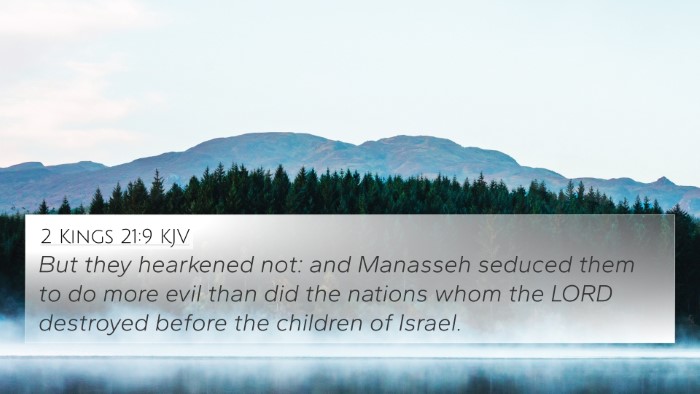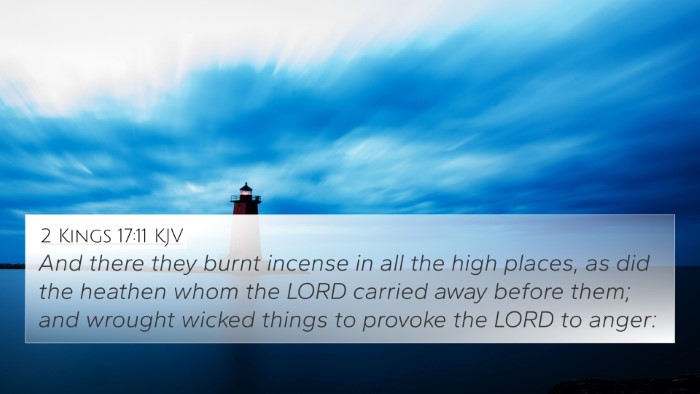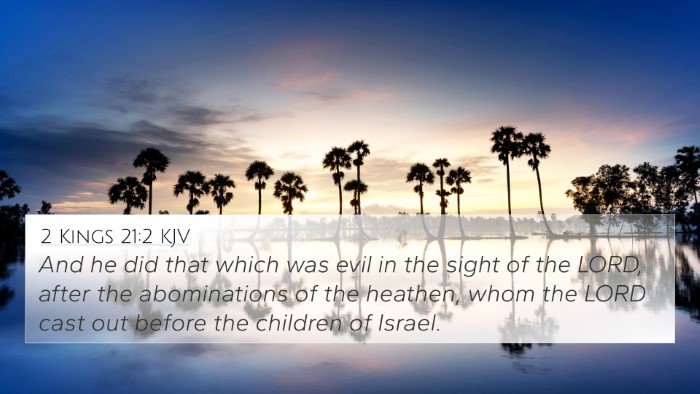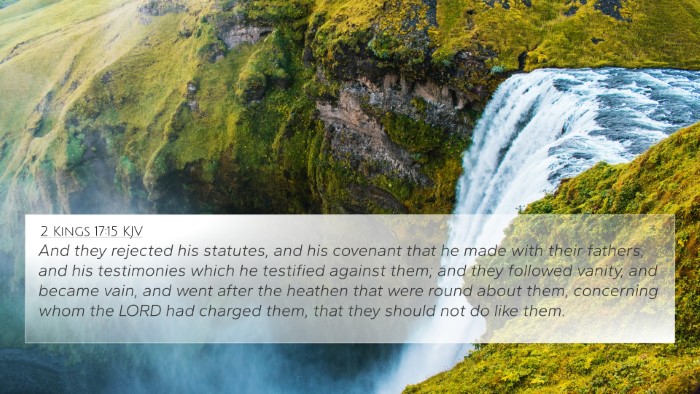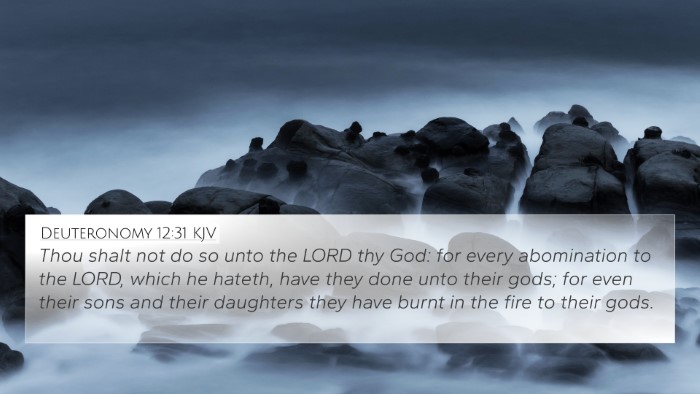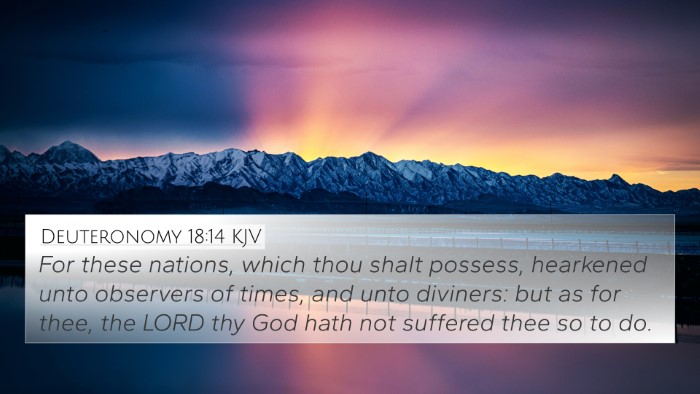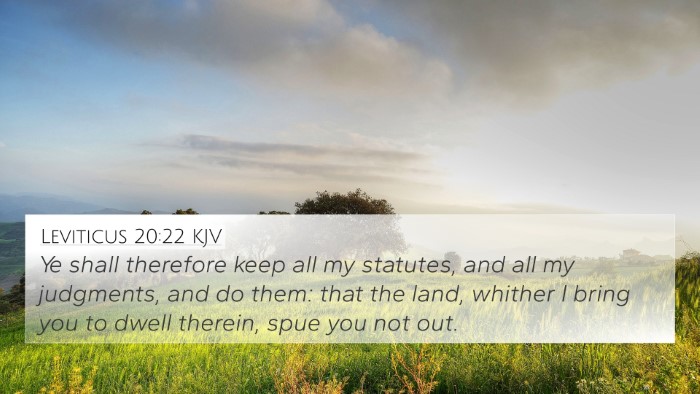Understanding 2 Chronicles 33:2
Verse: "But did that which was evil in the sight of the LORD, like unto the abominations of the heathen, whom the LORD had cast out before the children of Israel."
Overview of 2 Chronicles 33:2
The verse describes King Manasseh’s reign, particularly his sinful actions that starkly contrasted with God’s commandments and led the nation of Judah away from worshiping Yahweh. This passage highlights the gravity of idolatry and evil practices in relation to divine judgment.
Interpretational Insights
The common themes and interpretations drawn from prominent public domain commentaries are synthesized below:
1. Matthew Henry's Commentary
- Condemnation of Evil: Henry emphasizes that Manasseh’s actions were not only sinful but also a direct violation of God’s will, showcasing how he led the people astray.
- Comparison with the Heathen: The term "abominations of the heathen" indicates that Manasseh not only engaged in sin but adopted practices from pagan nations, which were explicitly condemned by God.
- Divine Perspective: The phrase "in the sight of the LORD" implies that God's judgment is based on the moral and spiritual condition of the heart, reinforcing that what one does is accounted before God.
2. Albert Barnes' Notes
- Historical Context: Barnes contextualizes this verse within the history of Israel, illustrating how Manasseh’s rule marked a significant departure from the reforms instituted by previous kings.
- Idolatry's Impact: The commentary highlights the devastating impact of idolatry on the community and the consequences that follow when a leader abandons God’s commandments.
- God’s Patience: Barnes notes God’s long-suffering nature, indicating that despite sin, the opportunity for repentance remains open, which serves as a lesson on grace and mercy.
3. Adam Clarke's Commentary
- Theological Implications: Clarke discusses the theological importance of Manasseh’s actions, showing how they reflect broader themes of sin, judgment, and redemption throughout the scripture.
- Prophetic Warnings: He relates this verse to prophetic warnings given to Israel about the consequences of idolatry, stressing the importance of adhering to God’s laws.
- Existential Reflection: Clarke suggests the verse invites readers to reflect on the nature of sin and the human tendency to stray from divine guidance, prompting a call for renewed devotion.
Cross-References for 2 Chronicles 33:2
Several Bible verses that relate to the themes of 2 Chronicles 33:2 include:
- 1 Kings 21:26: "And he did very abominably in following idols, according to all things as did the Amorites, whom the LORD cast out before the children of Israel."
- 2 Kings 21:16: "Moreover Manasseh shed innocent blood very much, till he had filled Jerusalem from one end to another; beside his sin wherewith he made Judah to sin, in doing that which was evil in the sight of the LORD."
- Deuteronomy 18:9: "When thou art come into the land which the LORD thy God giveth thee, thou shalt not learn to do after the abominations of those nations."
- Isaiah 1:4: "Ah sinful nation, a people laden with iniquity, a seed of evildoers, children that are corruptors: they have forsaken the LORD, they have provoked the Holy One of Israel unto anger, they are gone away backward."
- Jeremiah 7:30: "For the children of Judah have done evil in my sight, saith the LORD: they have set their abominations in the house which is called by my name, to pollute it."
- Ezekiel 22:3: "And say thou, Thus saith the Lord GOD; The city sheddeth blood in the midst of it, that her time may come, and maketh idols against herself, to defile her."
- Romans 1:21-23: "Because that, when they knew God, they glorified him not as God, neither were thankful; but became vain in their imaginations, and their foolish heart was darkened. Professing themselves to be wise, they became fools, And changed the glory of the uncorruptible God into an image made like to corruptible man..."
Thematic Connections
This verse, along with its cross-references, facilitates deeper insights into significant biblical themes:
- Idolatry: The pervasive nature of idolatry in Israel history and its consequences.
- Divine Judgment: Understanding God's response to sin and unfaithfulness among His people.
- Human Fallibility: Insights into human nature and the tendency to stray from God's path.
- Hope of Redemption: Despite the sin, there is always a pathway back to God through repentance, a recurrent theme throughout Scripture.
Conclusion
2 Chronicles 33:2 serves as a poignant reminder of the impact of leadership on spiritual integrity within a community. By exploring this verse through various commentaries and cross-referencing related scriptures, we gain comprehensive insights into the gravity of sin, the nature of divine judgment, and the ever-present opportunity for repentance and restoration. Understanding the connections between these biblical texts not only enhances our comprehension of scripture but also enriches our personal faith journey.
Further Resources for Study
For those interested in deeper exploration of biblical themes and cross-referencing methods, several tools and resources are available:
- Utilizing a Bible concordance to find related verses.
- Employing a Bible cross-reference guide for systematic study.
- Engaging in cross-reference Bible study to identify thematic connections across scripture.
- Using comprehensive programs or apps designed for Bible cross-reference systems.
- Participating in community studies that focus on cross-referencing Bible texts.
